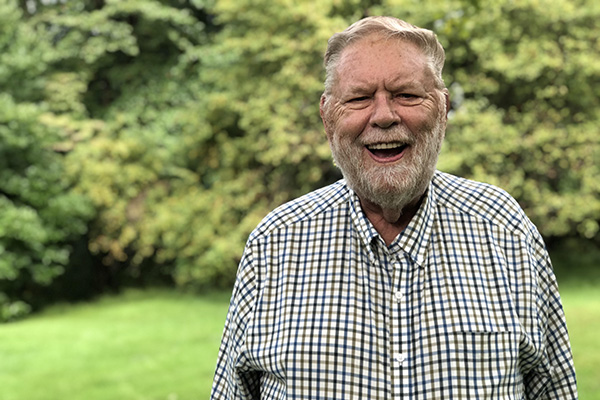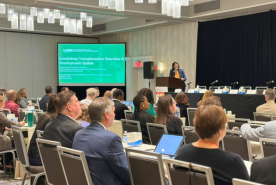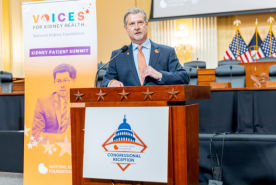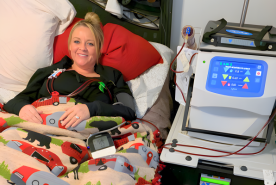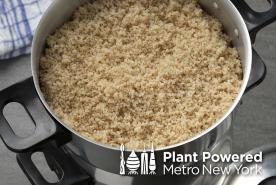Prevention, daily life, and wellbeing Treatments and therapies Health systems, social systems, and environmental factors Mental health and wellness Dialysis Healthcare system navigation and patient advocacy Coping and self-care Hemodialysis
September 21, 2018
<div>Three days per week, Allen H. Nelson wakes up well before dawn and drives himself to a facility near his home in Gradyville, Pennsylvania for his regular hemodialysis treatment. Although some might complain about the early wake-up call, the 78-year-old grandfather and retired pharmaceutical scientist says it’s a small price to pay for the life-saving treatment.</div>
Volunteering as a peer mentor is one of the many ways that this dialysis patient shows his gratitude for the treatment.
By Tate Gunnerson
Three days per week, Allen H. Nelson wakes up well before dawn and drives himself to a facility near his home in Gradyville, Pennsylvania for his regular hemodialysis treatment. Although some might complain about the early wake-up call, the 78-year-old grandfather and retired pharmaceutical scientist says it’s a small price to pay for the life-saving treatment.
“I’m here today, because of dialysis, and that's what I tell people,” said Allen - whose kidneys failed in 2012 as a result of type 2 diabetes. “Dialysis means life.”
Allen had pins made that are emblazoned with the words “dialysis means life,” which he has given to at least 100 fellow patients in his unit. It’s just one of the many ways that Allen shows his gratitude for the treatment.
For example, Allen works with the social worker in his local unit to produce a monthly newsletter that includes a mix of dialysis information, tips and jokes. He just finished the 28th edition, and just as he did with the first 27, Allen will personally deliver it to the more than 100 fellow patients at his local dialysis center, visiting six shifts over the course of two days. “The patients say it really helps them,” Allen said.
Helping people is also what inspired Allen to become a peer mentor for the National Kidney Foundation. As part of the volunteer position, Allen speaks by phone with new and existing dialysis patients. His youngest mentee is in her late 60s and the oldest is 87-years-old. Some people worry about how dialysis will impact their energy, diet or lifespan. Others just want to talk with somebody who understands what they’re going through.
“Everybody has different problems and situations, and it’s important to understand those situations so we can help them,” Allen said. “Listening is the most important thing that a mentor can do.”
Taking advantage of the National Kidney Foundation’s peer mentoring program is as simple as filling out and submitting an online application. Once submitted, an NKF staff member will reach out to gather more information before hand-selecting a peer mentor, who will make contact within one week.
The National Kidney Foundation also hosts online communities for kidney disease, dialysis, transplant patients as well as living donors and parents of children with kidney disease. “If you need help, there are places to get it,” Allen said.
Asking for help is one of the cornerstones of Allen’s mentoring practice. The others are to: follow doctor’s orders, make your treatments and always advocate for yourself.
Allen said that his experience as a peer mentor has taught him that when people reframed the way they looked at their condition, their fears often diminish. There are no cures or treatments for so many diseases, he said, but thanks to dialysis, people with kidney disease can live long and active lives.
While he sets two alarms to ensure that he makes his early morning treatment, Allen said, he’s finished by 9:30 a.m. and then he goes about his day. “I live a relatively normal life,” Allen said, "and other dialysis patients can too."
